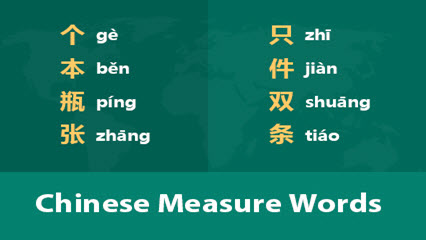When you start to learn a foreign language, how to express gratitude in that language is something that you must learn. In fact, for Chinese learners, “谢谢” is not the only way to thank others. We have a lot more expressions of showing gratitude which could convey different degrees of emotion and fit for different scenarios. If you want to speak more like a native Chinese, then read this article and learn 10 native ways to say thank you in Chinese.
1. 谢谢(xièxie)/谢谢你(xièxie nǐ)
If you ask a Chinese person how to say “thank you” in Chinese, he or she will probably answer “谢谢(xièxie)”or “谢谢你(xièxie nǐ)”. These two phrases are the most commonly used expressions of showing gratitude in Chinese. When someone does you a little favor or gives you a gift, you can say “谢谢(xièxie)” or “谢谢你(xièxie nǐ)”. You can also be more specific by adding what you want to thank after “谢谢(xièxie)”.
For example:
谢谢你的帮助。
Thank you for your help.
谢谢你的礼物。
Thank you for your gift.
2. 太谢谢你了(tài xièxie nǐ le)
Sometimes you may feel that “谢谢(xièxie)” or “谢谢你(xièxie nǐ)” is not sufficient enough to express how grateful you are. Just as in English we have “thank you very much”, in Chinese, we can say “太谢谢你了(tài xièxie nǐ le)”. We use the structure “太……了” which means too or extremely to express a higher degree. You can also add “真是(zhēn shì)” which means truly or indeed in front, that is, “真是太谢谢你了(zhēn shì tài xièxie nǐ le)”.
For example:
A: 邓邓, 我把你落在教室的伞拿回来了。
Dengdeng, I got back the umbrella you left in the classroom.
B: 哎呀, 太谢谢你了。
Oh, thank you so much.
A: 邓邓,真是太谢谢你帮我照看孩子了。
Dengdeng, thanks a lot for looking after my kid.
B: 不客气。快,跟你妈妈回家吧。
You’re welcome. Come on, go home with your mom.
3. 你真是太好了(nǐ zhēn shì tài hǎo le)/你最好了(nǐ zuì hǎo le)
Actually, in China, people don’t say 谢谢( xièxie ) or 谢谢你(xièxie nǐ) very often to their family or close friends, as they think it will distance each other. If you want to thank someone close to you, you can say something like 你真是太好了(nǐ zhēn shì tài hǎo le) or 你最好了(nǐ zuì hǎo le). 你真是太好了(nǐ zhēn shì tài hǎo le) is equivalent to “It’s very kind of you”in English. 你最好了(nǐ zuì hǎo le) means “You’re the best”. Please note that 你最好了(nǐ zuì hǎo le) is commonly used by the female as it sounds very cute.
Examples:
A: 看,我给你带了你最爱吃的饼干。
Look, I brought you your favorite cookies.
B: 哇,你真是太好了!
Wow, you are so sweet!
A: 亲爱的,和我一起去买东西吧。
Honey, would you like to go shopping with me?
B: 可是我不太想出门。
But I don’t feel like going out.
A: 拜托了。
Please.
B: 好吧。
OK.
A: 你最好了。
You are the best.
Are you frustrated because you can't understand native speakers? Do be upset. Our structured course EverydayChinese101 makes it easy to understand fast Chinese conversations in real life! 🎁 Sign-up for free trial. Visit https://bit.ly/EC-20OFF to enjoy an extra 20% OFF.
Early Bird SALE! You also can have 40% OFF of our structured courses for HSK. Ending soon!
🎁 HSK 1 Courses 🎁 HSK 2 Courses
4. 你太客气了(nǐ tài kèqi le)
In China, if someone comes for a visit and brings a gift, Chinese people often say “你太客气了(nǐ tài kèqi le)” which means “You are being so kind and generous”. You can add “这怎么好意思呢(zhè zěn me hǎo yì si ne, you don’t have to do that)” after “你太客气了(nǐ tài kèqi le)”. When someone invites you to dinner, you can also say “你太客气了(nǐ tài kèqi le)”.
For example:
A: 珍妮,好久不见。
Jenny, long time no see.
B: 好久不见,丽丽。
Long time no see, Lili.
A: 我给你带了个礼物。
I have a gift for you.
B: 哎呀,你太客气了,还带礼物。
Oh, it’s very kind of you to bring a gift.
A: 海涛,今晚来我家吃饭吧,我给你接风。
Haitao, how about coming to my house for dinner to celebrate your return tonight?
B: 你太客气了,这怎么好意思呢。
That’s very kind of you. You don’t have to do that.
5. 感谢您( gǎnxiè nín)/十分感谢您(shífēn gǎnxiè nín)
Sometimes, if you want to show gratitude to someone on formal occasions, such as in business scenarios, you can say “感谢您(gǎnxiè nín)” or “十分感谢您(shífēn gǎnxiè nín)”. 感谢(gǎnxiè) is a more formal way of “thank you”, and can be used as a noun or a verb. We usually use “感谢您(gǎnxiè nín)” or “十分感谢您(shífēn gǎnxiè nín)” in letters or in e-mails.
Examples:
亲爱的老师,感谢您这些年来的教导。
Dear teacher, thank you for teaching us over the years.
尊敬的顾客,十分感谢您的理解和支持。
Dear customer, thank you so much for your understanding and support.
6. 多亏你(duō kuī nǐ)
When you gain benefits or avoid misfortune due to someone’s help, you can say “多亏你(duō kuī nǐ)” instead of “谢谢(xièxie)”. “多亏你(duō kuī nǐ)” means “thanks to you” or “thanks to your help”.
For example:
李先生,今天真是多亏你了,不然我们完成不了任务。
Mr. Li, thanks to you today, otherwise we couldn’t have finished the task.
A: 明天记得带电脑。
Remember to bring your computer tomorrow.
B: 噢,多亏你提醒我,不然我都忘了。
Oh, thanks for reminding me, or I would have forgotten.
7. 爱你哟(ài nǐ yo)
爱你哟(ài nǐ yo) literally means “love you” in English. The sentence-final particle 哟 indicates a cute and lovely tone. So many girls like to use 爱你哟(ài nǐ yo) when they express gratitude to someone who has a good relationship with them. But boys seldom use 爱你哟(ài nǐ yo) as it is a very feminine expression.
Examples:
A: 姐们儿,我给你买到你一直想要的口红了。
Sister, I’ve got you the lipstick you always wanted.
B: 爱你哟!
Love ya!
A: 老公,帮我拿瓶牛奶来。
Honey, bring me a bottle of milk.
B: 好的。
Okay.
A: 爱你哟。
Love ya!
8. 感激不尽(gǎnjī bújìn)
感激(gǎnjī) is a verb which means to feel grateful. 不尽(bújìn) means endless. 感激不尽(gǎnjī bújìn) means my gratitude to you is endless. Sometimes you may feel that even thousands of words cannot express how grateful you are for this person as he or she has done such a great favour to you, for example, saving your life, and you are quite moved. 感激不尽(gǎnjī bújìn) is a perfect phrase in this situation.
Example:
A: 小心!
Watch out!
B: 兄弟,你刚刚救了我一命!感激不尽,以后有什么用得上我的,尽管说!
Bro, you just saved my life! Thank you for your kindness. If I can help you in the future, just let me know!
A: 要是没有你借给我那么多钱,我肯定买不起这套房子,我真是感激不尽。
If you hadn’t lent me so much money, I wouldn’t have been able to afford to buy this apartment. Thank you so much.
B: 兄弟,咱俩之间不用说这些。
Bro, you have no need to say that.
9. 您辛苦了(Nín xīnkǔ le)/辛苦你了(Xīnkǔ nǐ le)/大家辛苦了(Dàjiā xīnkǔ le)
您辛苦了(nín xīnkǔ le) or 辛苦你了(xīnkǔ nǐ le) is a very polite expression that you really appreciate the efforts or the help of someone. You can also say “大家辛苦了(dà jiā xīnkǔ le)” if you are the boss or the team leader and want to express thanks to everyone’s hard work.
Example:
妈妈,今天是母亲节,您辛苦了。
Mom, today is Mother’s Day. I’d like to say you’re the best mom.
哥们,今天你帮我搬了那么多货,辛苦你了。
Bro, thank you for helping me carry so many goods.
今年公司的业绩比往年都好,大家辛苦了。
The company’s sales performance this year is better than ever, thanks for everyone’s efforts.
10. 哪里哪里(nǎli nǎli)
If someone gives you a compliment, how do you respond? English speakers often say “thank you”, while in the traditional Chinese culture, it’s considered more polite if you don’t accept the complements right away. “哪里哪里(nǎli nǎli) literally means “where where”, but it actually means “I’m flattered”. Thus, we often say “哪里哪里(nǎli nǎli)”to show modesty when someone speaks highly of you.
For example:
A: 邓邓,你的裙子真好看!
Dengdeng, you look great in this dress!
B: 哪里哪里!
Thank you!
A: 小王,你刚才表现得太棒了!
Xiao Wang, you did a great job just now!
B: 哪里哪里。
Thank you.
Conclusion
Now you have read all these ten common expressions to say thank you in Chinese. They are suitable for different occasions. But don’t be afraid to use them as Chinese people can see that you are being more immersed in Chinese culture. Do you know more ways to express your gratitude in Chinese? Please leave them in the comment section.






Comments